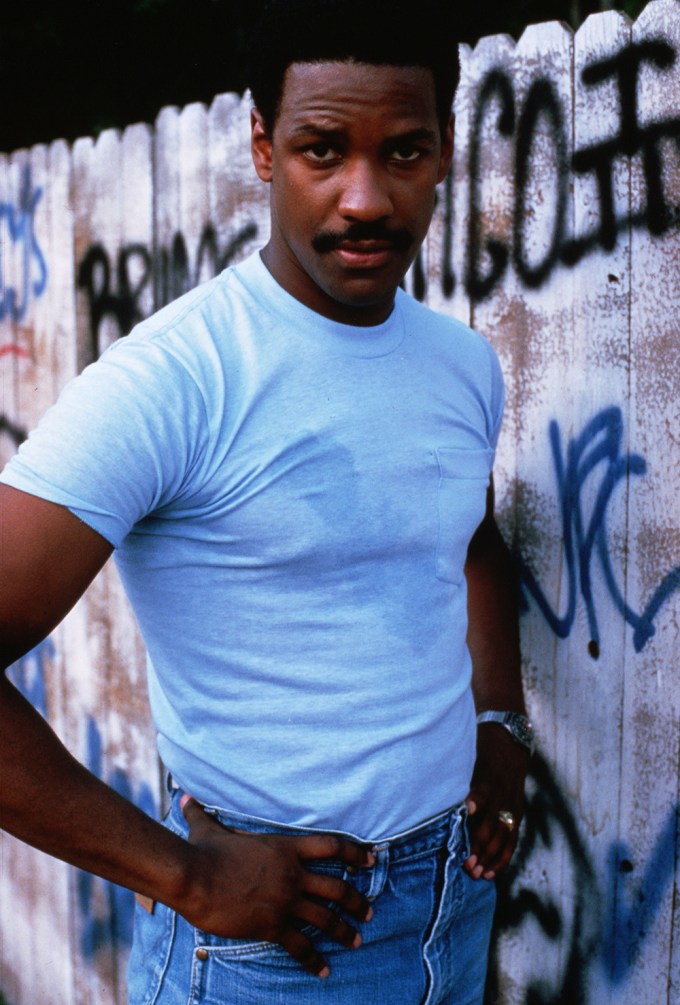Denzel Washington is not just an iconic actor but also a cultural figure whose views and affiliations can spark conversations across various platforms. As a celebrated artist, Washington has played numerous roles that reflect societal issues, but what do we know about his political beliefs? In an era where celebrity influence extends beyond the silver screen, understanding Washington's political stance offers insight into the intersection of entertainment and activism. This article aims to explore Denzel Washington's political affiliation, shedding light on his perspectives and how they align with broader political movements.
While Washington has often remained private about his political affiliations, he has made statements that indicate his views on key issues. His approach to politics is nuanced, often reflecting a blend of personal experience and broader social consciousness. Whether through interviews, speeches, or his roles in film, Washington's contributions to political discourse are multifaceted, making it essential to dissect his public persona from his private beliefs.
As we delve deeper into Denzel Washington's political affiliations, we will explore his biography, significant quotes, and the impact of his work on political discourse. Let's uncover how Washington navigates the often-complex landscape of politics while maintaining his authenticity as an artist.
Who is Denzel Washington? A Brief Biography
Denzel Washington, born on December 28, 1954, in Mount Vernon, New York, is an American actor, director, and producer. He is widely regarded as one of the greatest actors of his generation, known for his powerful performances in films such as "Training Day," "Malcolm X," and "Fences." Washington has received numerous accolades, including two Academy Awards, three Golden Globe Awards, and a Tony Award.
| Personal Details | Information |
|---|---|
| Name | Denzel Hayes Washington Jr. |
| Date of Birth | December 28, 1954 |
| Place of Birth | Mount Vernon, New York, USA |
| Occupation | Actor, Director, Producer |
| Years Active | 1975 - Present |
| Notable Awards | 2 Academy Awards, 3 Golden Globes, 1 Tony Award |
What are Denzel Washington's Political Views?
Denzel Washington's political views are often seen through the lens of his public statements and the roles he chooses to portray. He has expressed support for various social justice issues, including education reform and racial equality. His portrayal of Malcolm X in Spike Lee's film not only highlighted the civil rights struggle but also resonated with Washington's personal beliefs about the importance of fighting for justice and equality. Despite his influence, Washington tends to remain somewhat reserved when discussing his political affiliations directly.
How Does Denzel Washington Engage with Political Issues?
While Washington does not frequently engage in overt political activism, he uses his platform to address important issues. For instance, he has spoken about the importance of education, emphasizing the need for young people to pursue knowledge and self-improvement. Washington believes that education is a critical avenue for empowerment, particularly for marginalized communities.
- Education reform and access
- Racial equality and justice
- Advocacy for the arts in education
Has Denzel Washington Endorsed Any Political Candidates?
While Denzel Washington has not been known to endorse specific political candidates publicly, he has expressed admiration for figures who advocate for social change. For example, he has praised the leadership of former President Barack Obama, recognizing the significance of his presidency as a momentous occasion in American history. Washington believes in the importance of representation and has highlighted the need for diverse voices in politics.
What Role Does Denzel Washington Play as a Cultural Icon?
As a cultural icon, Denzel Washington holds a unique position that allows him to influence public discourse. His roles often challenge societal norms and address critical issues, prompting audiences to reflect on their beliefs. Through his art, Washington encourages dialogue about race, identity, and social justice, using his films as a medium to spark conversations that extend beyond the cinema.
How Does Denzel Washington's Background Influence His Political Affiliation?
Washington's upbringing in a working-class neighborhood, coupled with his experiences as a Black man in America, has significantly shaped his perspectives on various issues. He often speaks candidly about the challenges faced by the African American community, advocating for greater understanding and support. Washington's life experiences serve as a foundation for his beliefs, motivating him to use his platform to uplift and empower others.
What Are Some Notable Quotes from Denzel Washington on Social Issues?
Denzel Washington's words often reflect his deep understanding of social issues. Here are a few notable quotes that capture his essence:
- "You can't be afraid to fail. It's the only way you succeed."
- "I think a lot of people are afraid of the truth. I think a lot of people are afraid of the truth because it can be very uncomfortable."
- "What I want to do is make a difference. I want to leave the world a better place than I found it."
Conclusion: What is Denzel Washington's Political Affiliation?
In conclusion, while Denzel Washington may not publicly align himself with a specific political party, his contributions to social issues and advocacy for the African American community are undeniable. His political affiliation, if one were to categorize it, leans towards a desire for social justice, equality, and education reform. Washington's influence as an artist transcends traditional political affiliations, allowing him to be a voice for change without being confined to a particular ideology.
Ultimately, understanding Denzel Washington's political affiliation requires looking beyond party lines. It involves recognizing his commitment to using his platform for advocacy and social change, making him a significant figure in both the entertainment industry and the broader political landscape.


